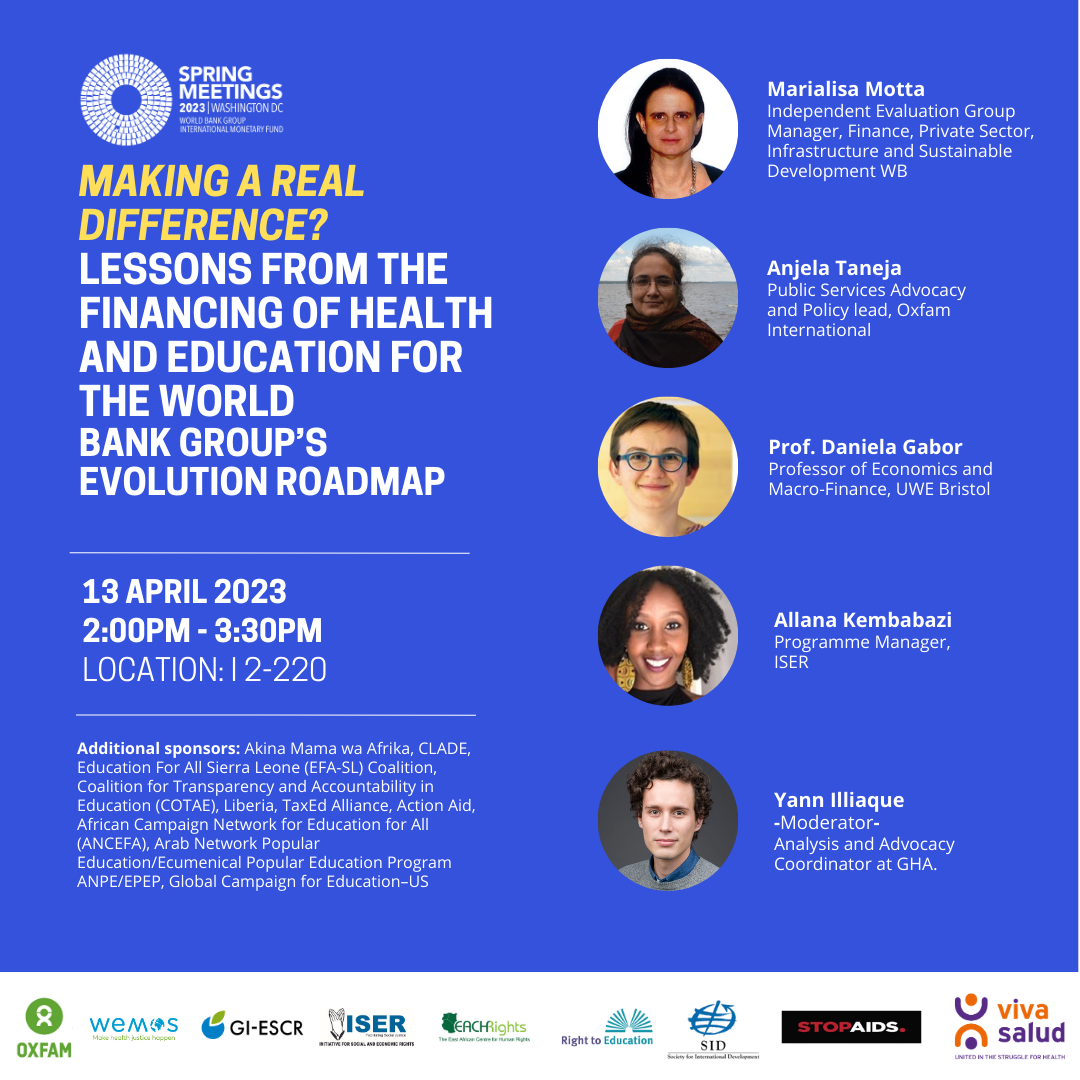
Lessons from the financing of health and education for the WBGroup’s Evolution Roadmap
Making a real difference? Lessons from the financing of health and education for the World Bank Group’s Evolution Roadmap
GI-ESCR and partners organised a panel in the framework of the IMF / World Bank Spring Meetings 2023. The World Bank Group proposed its Evolution Roadmap to address better the scale of development challenges such as poverty, shared prosperity, inequality, and cross-border challenges, including climate change, pandemics, fragility, conflict and violence, affecting the Group’s ability to achieve its mission.
Drawing from evidence on the impact of different financing approaches on the provision of public services (health and education), the session challenged us to avoid past mistakes and to think beyond the numbers to address the quality and impacts of financing.

Prof. Daniela Gabor, Professor of Economics and Macro-Finance, UWE Bristol, warned about the consequences of making public goods, such as health, education and infrastructure, "investable".
Anjela Taneja, Public Services Advocacy and Policy lead, Oxfam International, pointed to the 25 years of investment in India that have had limited focus on improving healthcare systems. She warned that Insurance and PPPs are not a panacea in systems with weak regulation capacity.
Allana Kembabazi, Programme Manager, Initiative for Social and Economic Rights (ISER), called for the evidence of success in financing private actors to provide Public Services to be made available as she pointed to the coexistence, in Uganda, of a weak public health and education system amidst austerity measures and the International Finance Corporation support to private actors.
The Independent Evaluation Group (IEG) presented the lessons learned from IFC’s investments in K-12 private education which concluded that there is no case for resuming IFC investments in K-12 private schools without a fundamental change in its approach. It recognised the public role as essential in private education. It called for the need for states should regulate, monitor and set minimum standards to maintain and improve quality and equity.




